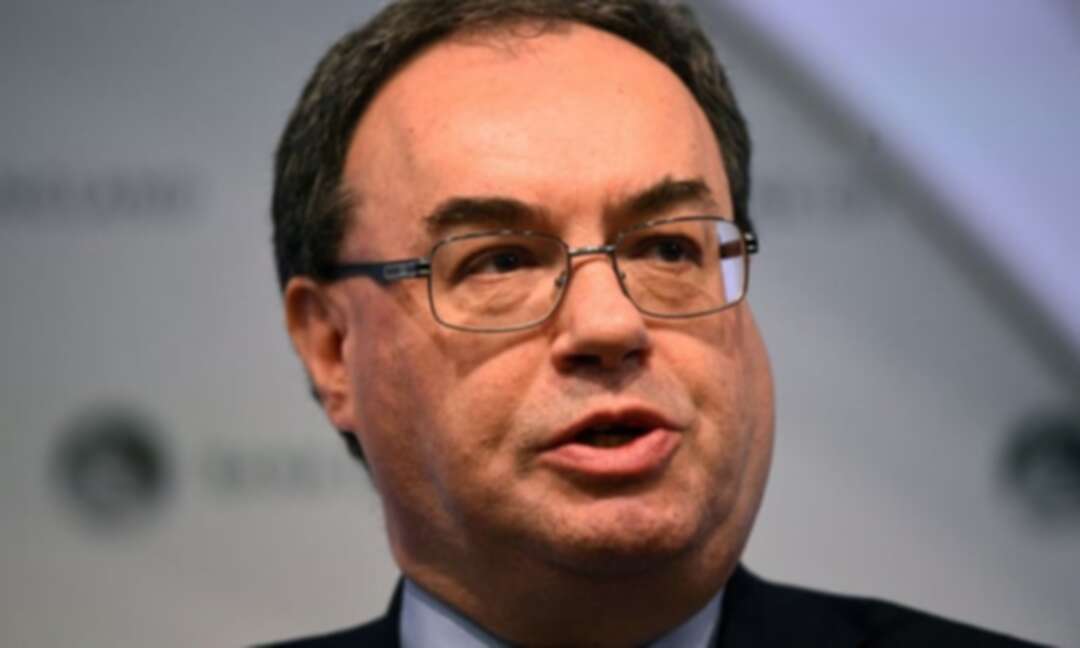-
Lockdown leading to 'very difficult period' for UK economy, warns Bank governor

Andrew Bailey says unemployment thought to be over 6% and talks down prospect of negative interest rates
The Bank of England governor, Andrew Bailey, has said the economy is in a “very difficult period” due the latest Covid-19 lockdown and it would probably delay the recovery.
In comments on Tuesday that echoed warnings from the chancellor, Rishi Sunak, a day earlier that the economy “is going to get worse before it gets better”, Bailey said it would bounce back, but only after the lockdown had ended and concerns about the spread of the virus had receded.
“
In a speech online to the Scottish Chambers of Commerce he said the shape of the recovery, while delayed, would broadly follow the forecast made by the Bank’s monetary policy committee (MPC) last November.
Bailey said the unemployment rate, which he previously expected to peak at about 7%-8% in the summer would be lower after the government extended its job protection scheme and other measures to safeguard household incomes.
However, the rate was likely to rise above the 4.9% that official figures estimate for the three months to October.
Bailey said the figure was already higher despite the extra measures that Sunak has announced, including a further £4.5bn last week for the hospitality sector.
“Our best guess nationwide is probably it’s around 6.5%,” Bailey said.
The MPC meets early next month to discuss how the central bank can help to protect the economy during the lockdown, including whether interest rates should be cut to below zero – a move that could ease borrowing costs on households and businesses.
Bailey said he was sceptical that a cut from the current all-time low of 0.1%would be painless, arguing it could make the situation worse.
He said there were “lots of issues” with cutting interest rates into negative territory and such a move could hurt banks.
“In simple economics and maths terms, there is nothing to stop it at all,” he said. “However there are a lot of issues with it.”
On Monday, one of the MPC’s nine committee members said she believed negative rates would benefit the UK economy and help it make a faster recovery.
Silvana Tenreyro said central banks in Japan and the eurozone had cut rates to below zero to support borrowing and she was likely to vote for the UK to follow suit when a review by the Bank was completed.
Bailey said negative rates – the subject of a feasibility review by the central bank – would complicate banks’ efforts to be profitable and force them to restrict lending.
He argued that it was not easy to draw a direct parallel with similar action in the eurozone, where banks have mostly passed on the benefits to large businesses.
source: Phillip Inman
Levant
You May Also Like
Popular Posts
Caricature
BENEFIT Sponsors BuildHer...
- April 23, 2025
BENEFIT, the Kingdom’s innovator and leading company in Fintech and electronic financial transactions service, has sponsored the BuildHer CityHack 2025 Hackathon, a two-day event spearheaded by the College of Engineering and Technology at the Royal University for Women (RUW).
Aimed at secondary school students, the event brought together a distinguished group of academic professionals and technology experts to mentor and inspire young participants.
More than 100 high school students from across the Kingdom of Bahrain took part in the hackathon, which featured an intensive programme of training workshops and hands-on sessions. These activities were tailored to enhance participants’ critical thinking, collaborative problem-solving, and team-building capabilities, while also encouraging the development of practical and sustainable solutions to contemporary challenges using modern technological tools.
BENEFIT’s Chief Executive Mr. Abdulwahed AlJanahi, commented: “Our support for this educational hackathon reflects our long-term strategic vision to nurture the talents of emerging national youth and empower the next generation of accomplished female leaders in technology. By fostering creativity and innovation, we aim to contribute meaningfully to Bahrain’s comprehensive development goals and align with the aspirations outlined in the Kingdom’s Vision 2030—an ambition in which BENEFIT plays a central role.”
Professor Riyadh Yousif Hamzah, President of the Royal University for Women, commented: “This initiative reflects our commitment to advancing women in STEM fields. We're cultivating a generation of creative, solution-driven female leaders who will drive national development. Our partnership with BENEFIT exemplifies the powerful synergy between academia and private sector in supporting educational innovation.”
Hanan Abdulla Hasan, Senior Manager, PR & Communication at BENEFIT, said: “We are honoured to collaborate with RUW in supporting this remarkable technology-focused event. It highlights our commitment to social responsibility, and our ongoing efforts to enhance the digital and innovation capabilities of young Bahraini women and foster their ability to harness technological tools in the service of a smarter, more sustainable future.”
For his part, Dr. Humam ElAgha, Acting Dean of the College of Engineering and Technology at the University, said: “BuildHer CityHack 2025 embodies our hands-on approach to education. By tackling real-world problems through creative thinking and sustainable solutions, we're preparing women to thrive in the knowledge economy – a cornerstone of the University's vision.”
opinion
Report
ads
Newsletter
Subscribe to our mailing list to get the new updates!






















